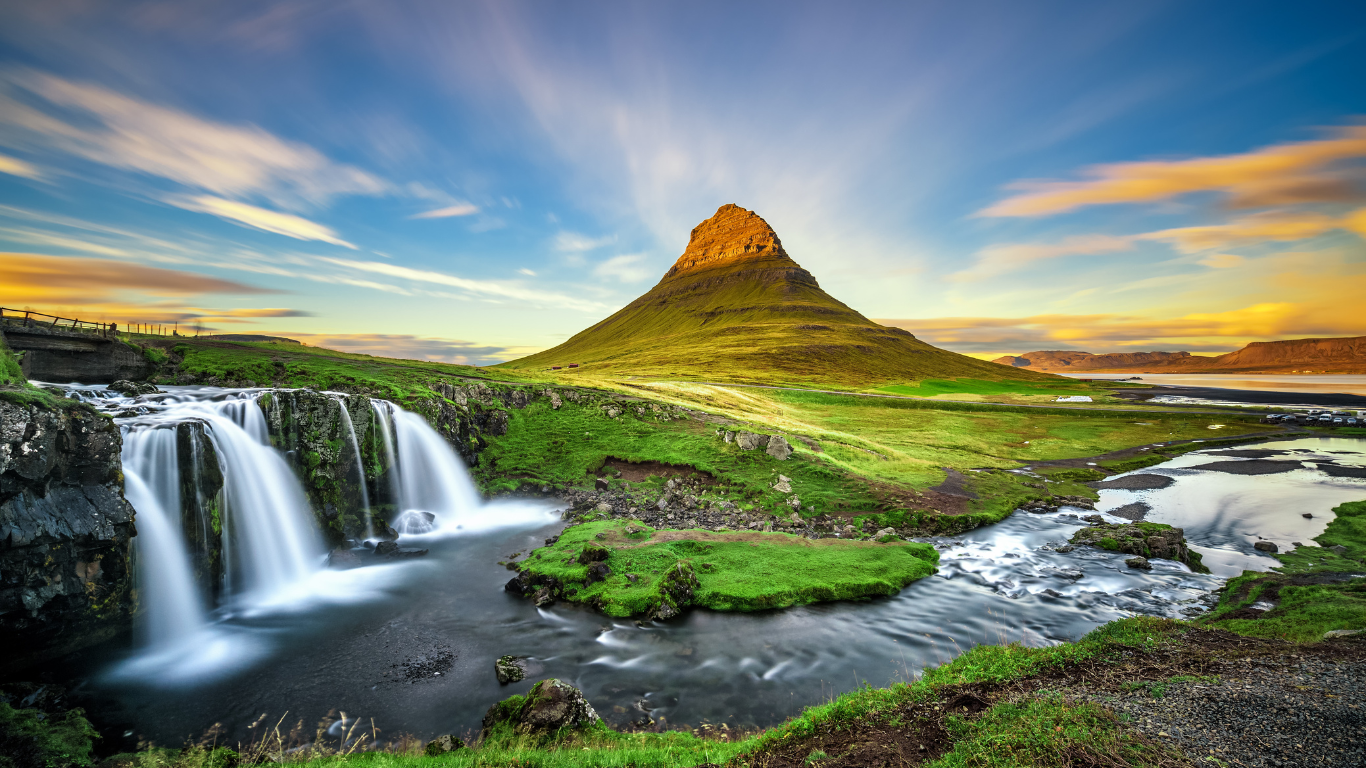
Tour Packages
ICELAND
8-Day Small Group Circle of Iceland Tour
Circuit
8 days – 7 nights
7-Day Around Iceland Ring Road & Snæfellsnes
Circuit
7 days – 6 nights
6-Day Icelandic Ring Road Tour
Circuit
6 days – 5 nights
6-Day Small Group Tour of Iceland
Circuit
6 days – 5 nights
4, 5, 6 or 7-Day Small Group Ring Road Tour
Circuit
4 – 7 days
5-Day Northern Lights Hunt & Glacier Lagoon Tour
Free Cancellation
5 days – 4 nights
4-Day Blue Ice Cave & Northern Lights Tour
Circuit
4 days – 3 night
4-Day South Coast, Golden Circle, and Snæfellsnes
Circuit
4 days – 3 night
3-Day Golden Circle, South Coast & Glacier Tour
Circuit
3 days – 2 night
3-Day South Coast Winter Tour with Ice Cave
Circuit
3 days – 2 night
2-Day Tour with Icebergs, Glaciers & Waterfalls
Circuit
2 days – 1 night
2-Day South Coast Tour with Blue Ice Cave
Circuit
2 days – 1 night
Explore 75+ Tour Packages
Iceland like never before
Tour Packages
Featured Destinations
ICELAND
Things to do
ICELAND
Day Trips
ICELAND
Free Walking Tours
The best free walking tour guides in the world are here. A “free tour” is a guided city tour where history, culture, and lifestyle are explained. Currently, it is already the first choice for travelers in any city they visit. Get a free walking tour in ICELAND with local guides:
Free Tours in IcelandMulti-day Trips
ICELAND
eSIM for Iceland
Buy an international eSIM and never pay for roaming again. Connect to Unlimited Internet at 3G/4G/LTE/5G speed in minutes and stay in touch with your family and friends. Enjoy a 5% discount on any plan and destination: Promo Code: ITACATOURS5
Get Unlimited InternetAkureyri
ICELAND
Akureyri is Iceland’s northern gem, where fjordside serenity, Arctic charm, and cultural flair come together in a town that feels both cozy and adventurous. Nicknamed the “Capital of the North,” Akureyri sits at the base of Eyjafjörður, surrounded by snow-capped peaks and lush valleys. Stroll through its colorful downtown, where cafés, bookstores, and street art give the town a creative pulse. Visit the Akureyri Botanical Garden, one of the northernmost in the world, or admire the striking architecture of Akureyrarkirkja, the town’s iconic church. Nature lovers can chase waterfalls like Goðafoss, explore the volcanic landscapes of Lake Mývatn, or soak in the Forest Lagoon, a geothermal spa nestled in the hills. In winter, the nearby slopes of Hlíðarfjall offer some of Iceland’s best skiing, while summer brings midnight sun hikes and whale watching in the fjord. Whether you’re sipping Icelandic craft beer, uncovering hidden gems in local galleries, or simply watching the northern lights dance above the harbor, Akureyri offers a perfect blend of tranquility and wonder.
Things to do
AKUREYRI
Day Trips
AKUREYRI
Reykjavik
ICELAND
Reykjavík is where Nordic cool, volcanic landscapes, and creative spirit meet at the edge of the Arctic. As Iceland’s quirky and captivating capital, it blends Viking roots, colorful street life, and geothermal wonders into one unforgettable experience. Start your day with a stroll around Tjörnin, the city’s serene central lake, then dive into history at the National Museum of Iceland or explore the bold architecture of Hallgrímskirkja, Reykjavík’s iconic church. Warm up in one of the city’s many geothermal pools, like the beloved Laugardalslaug, or sip craft beer in a cozy bar in Reykjavík 101, the city’s buzzing downtown district. Don’t miss the Sun Voyager sculpture, a dreamlike ode to exploration, or the Harpa Concert Hall, where glass panels shimmer like northern lights. Whether you’re savoring fresh seafood and kleinur, uncovering hidden gems in local design boutiques, or chasing the aurora borealis on a crisp winter night, Reykjavík offers a perfect blend of urban charm and wild wonder.
Things to do
REYKJAVIK
Free Walking Tours
The best free walking tour guides in the world are here. A “free tour” is a guided city tour where history, culture, and lifestyle are explained. Currently, it is already the first choice for travelers in any city they visit. Get a free walking tour in REYKJAVIK with local guides:
Free Tours in ReykjavikDay Trips
REYKJAVIK
Vik
ICELAND
Vík is a tiny coastal village with an outsized sense of drama—where black sand beaches, towering cliffs, and volcanic backdrops create a landscape that feels straight out of a fantasy novel. Perched on Iceland’s southernmost tip, Vík is best known for Reynisfjara Beach, where basalt columns rise like organ pipes and the Atlantic crashes against jet-black sands. Just offshore, the Reynisdrangar sea stacks loom like ancient sentinels, steeped in local legend. A short drive away, Dyrhólaey offers sweeping views and puffin sightings in summer, while the Vík Church, perched on a hill, provides a postcard-perfect panorama of the village below. Despite its small size, Vík is a popular stop on the Ring Road—offering cozy cafés, local wool shops, and access to nearby wonders like Mýrdalsjökull glacier and Katla volcano. Whether you’re chasing waterfalls, exploring sea caves, or simply watching the waves roll in, Vík delivers a perfect blend of wild beauty and quiet charm.

